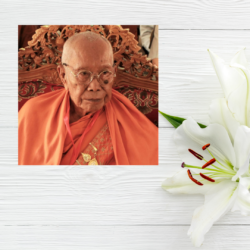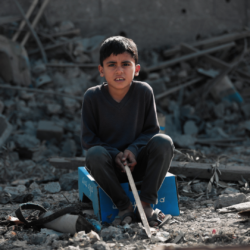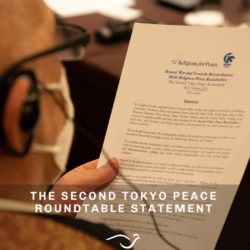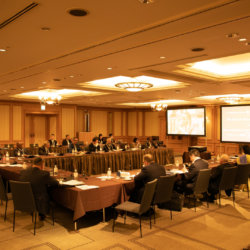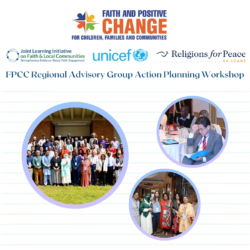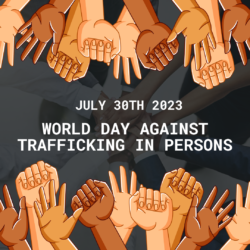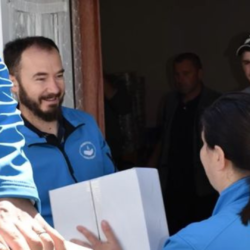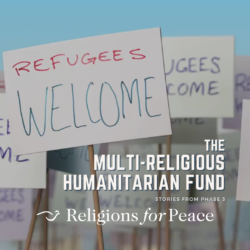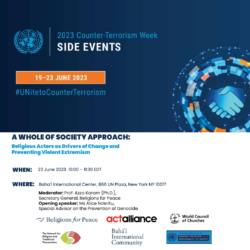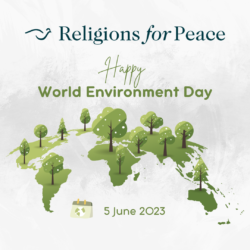Category: RfP Asia
The Second Tokyo Peace Roundtable Statement
Religions for Peace International and Religions for Peace Japan, in partnership with the United Nations Alliance of Civilizations (UNAOC), concluded the second “Beyond War and Toward Reconciliation: Multi-Religious Peace Roundtables” which took place from 19-21 February 2024, in Tokyo, Japan. The Second Tokyo Peace Roundtable concluded with the Beyond War and Towards Reconciliation: Multi-Religious Peace Roundtables Statement that made commitments “to continue to pray and work multi-religiously towards a culture of peace that advances shared well-being, grounded in respect for the sanctity of life and human dignity.” We, religious leaders, representatives of diverse faiths, bodies, and religious institutions (Buddhism, Christianity, Hinduism, Islam, and Judaism) from Colombia, Haiti, India, Israel, Japan, Kenya, Mali, Myanmar, Palestine, Peru, Russia, Spain, Türkiye, Ukraine, and the United States, Read more about The Second Tokyo Peace Roundtable Statement[…]
Reflections on The 2nd Tokyo Peace Roundtable
Reflections on The 2nd Tokyo Peace RoundtableRev. Dr. Yoshinori Shinohara The second Tokyo Peace Roundtable, “Beyond War and Towards Reconciliation: Multi-Religious Peace Roundtables,” was held for three days from February 19 in 2024, organized by Religions for Peace International and Religions for Peace Japan in partnership with the United Nations Alliance of Civilizations (UNAOC). Approximately 100 participants from 16 countries, including religious leaders from conflict zones, gathered at the conference. The second roundtable was based on the statement of the first roundtable held in 2022, which called for “religious leaders to build bridges for peacebuilding,” “responsibility for healing communities torn apart by war,” and “continued dialogue to promote cooperation among religious Read more about Reflections on The 2nd Tokyo Peace Roundtable[…]
FPCC Regional Advisory Group Action Planning Workshop
Religions for Peace South Asia participated in the FPCC Regional Advisory Group Action Planning WorkshopColombo, Sri Lanka. Religions for Peace Asia participated in the FPCC Regional Advisory Group (RAG) 3-day workshop on Faith Actors for Child Rights and Well-being: Enhancing Collaboration and Positive Change for Adolescent Girls in South Asia from 13-15 August 2023. The Faith for Positive Change for Children is a tripartite collaboration of Religions for Peace, Unicef, and Joint Learning Initiative.The FPCC is the fruit of the more than 3 decades of partnership between Unicef and Religions for Peace’ commitment from over 90 affiliate countries including women and youth interfaith to work and advance the well-being of Read more about FPCC Regional Advisory Group Action Planning Workshop[…]
“Reach every victim of trafficking, leave no one behind”
United Nation set every July 30th as “World Day Against Trafficking in Persons”Upon hearing “trafficking in persons” or “human trafficking,” some may think it is happening in a distant world and does not affect our lives.However, if there are “victim” countries, there are “perpetrator” countries, and we may be one of them.Human trafficking is caused by war, poverty, lack of educational opportunities, and poverty.2019 The ILO announced that child labor and trafficking remain critical concerns for global supply chains.According to target 8.7 of the Sustainable Development Goals (SDGs), it takes immediate and effective measures to eradicate forced labor, end modern slavery and human trafficking, and secure the prohibition and elimination Read more about “Reach every victim of trafficking, leave no one behind”[…]
Story of Multi-Religious Humanitarian Fund for People Suffering by Ongoing Violent Conflict Across the Globe
Religions for Peace remains committed to ease the suffering of those displaced by ongoing violent conflict across the globe through our flagship Multi-Religious Humanitarian Fund. Asociația Gondviselés Segélyszervezet (AGS), one of the recipients of the Fund and the charity organisation of the Hungarian Unitarian Church, partnered with local religious and faith communities to mobilise humanitarian relief for Ukrainian refugees in Romania and IDPs in Ukraine. With the support of Religions for Peace, AGS provided safe shelter, continued learning opportunities, and lifesaving supplies to those in need.To learn more about this project, go to https://bit.ly/46NxF6u.Religions for Peace continues to support interfaith initiatives through the Multi-Religious Humanitarian Fund. Help us meet the Read more about Story of Multi-Religious Humanitarian Fund for People Suffering by Ongoing Violent Conflict Across the Globe[…]
Stories from the Multi-Religious Humanitarian Fund
On this World Refugee Day, Religions for Peace highlights its flagship Multi-Religious Humanitarian Fund and select success stories from the interfaith initiatives supported. From delivering emergency assistance to those affected by acute health crises, to offering vital relief and mental health services to refugees and internally displaced peoples, our lasting impact on those affected by humanitarian emergencies is far-reaching.
A Whole of Society Approach: Religious Actors as Driver of Change and Preventing Violent Extremism
A Whole of Society Approach: Religious Actors as Driver of Change and Preventing Violent Extremism will highlight the importance of the Plan of Action on the Role of Religious Leaders and Actors to Preventing Incitement to Violence that could lead to Atrocity Crimes as an essential tool for conflict prevention, countering violent extremism, and atrocity crimes while ensuring protection of human rights. This event will showcase good practices and lessons learned, including building effective partnership between UN Member States and Agencies, civil society, and other relevant stakeholders to contribute to sustainable peace. It will also offer reflections on ways to further strengthen capacity building programmes.[WHEN] June 23, 2023 10:00-11:30 AM (EDT) Read more about A Whole of Society Approach: Religious Actors as Driver of Change and Preventing Violent Extremism[…]
Happy World Environment Day
On this World Environment Day, Professor Azza Karam, Secretary General of Religions for Peace stresses about how “It is time for us to invest in the health of our planet,” and why we need to beat plastic pollution.Religions for Peace continues to impact the environment by mobilising religious leaders and communities to take action for sustainability, raising awareness for the importance of environmental stewardship and fostering interfaith cooperation in tackling ecological challenges.

